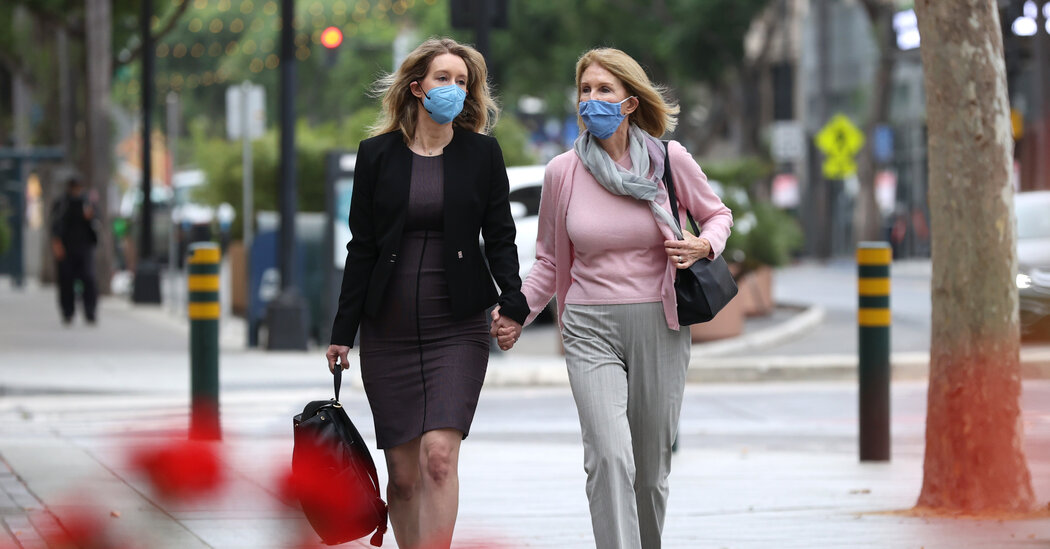
SAN JOSE, Calif. — Erika Cheung, a key whistle-blower in the fraud trial of Elizabeth Holmes, the founder of the failed blood-testing start-up Theranos, wrapped up her testimony on Friday after saying the company had put a priority on speed over accuracy in its blood tests and answering hours of questions by the defense.
Over three days of testimony, Ms. Cheung, a former Theranos employee, detailed how some of the processes the company used to conduct its blood tests were problematic. While the defense sought to show that Theranos’s procedures were rigorous and complex, Ms. Cheung said on Friday that its priority was to conduct tests as quickly as possible and that its machines often failed their quality-control checks.
Ms. Cheung said Theranos’s blood tests might have been cheaper than other tests, but that did not mean “you should give people false information about their health status.”
Ms. Cheung was a high-profile witness for the federal government, which is trying to make the case that Ms. Holmes intentionally misled investors, doctors and patients about how well Theranos’s blood testing technology worked. The company, once held up as a Silicon Valley success story with Ms. Holmes its shining star, collapsed in 2018. Ms. Holmes, 37, faces 12 counts of wire fraud and conspiracy to commit wire fraud, and has pleaded not guilty.
Ms. Cheung, who worked as a lab assistant at Theranos for several months in 2013 and 2014 before reporting lab testing problems to federal agents in 2015, testified this week that she had concerns about how the company deleted outliers in its data to ensure that its devices passed quality-control tests. She said her concerns had begun about a month into her employment.
During cross-examination, Lance Wade, a lawyer for Ms. Holmes, quizzed Ms. Cheung on the processes, procedures and organizational chart of Theranos’s labs. The apparent point was to show that the issues Ms. Cheung raised about inaccurate lab results applied to only one small area of the company.
While Ms. Cheung dutifully answered, recalling Theranos’s procedures and organizational structure, she countered that its blood testing machines had constantly needed recalibration and failed their quality checks. Recalibrating the machines could take days, she said.
“We had people sleeping in the car because it was taking too long,” she said.
On Friday, Mr. Wade also asked Ms. Cheung about a 2015 letter she received from Theranos’s lawyer at the time, David Boies. In the letter, which Ms. Cheung mentioned earlier in her testimony, Mr. Boies threatened litigation against her for discussing Theranos with John Carreyrou, a Wall Street Journal reporter who exposed the company’s testing problems that year.
Mr. Wade noted that Ms. Cheung had received two calls from Theranos’s human resources director before receiving the letter from Mr. Boies but had not returned them.
Ms. Cheung later said she had not returned the calls because she no longer worked at Theranos and because the “fear” in the human resources director’s voice reminded her of how scared she had been at the company.
“I had the right to not speak to them,” Ms. Cheung said.



